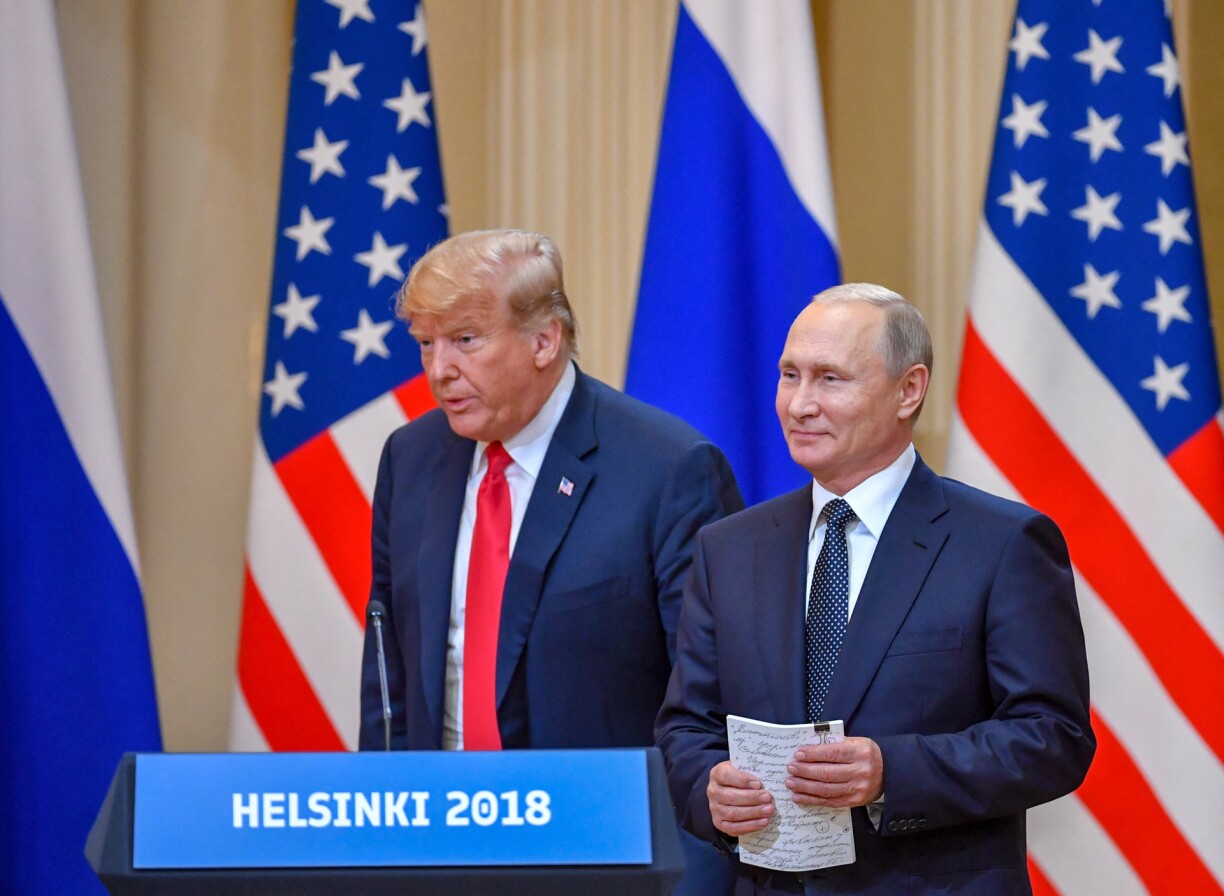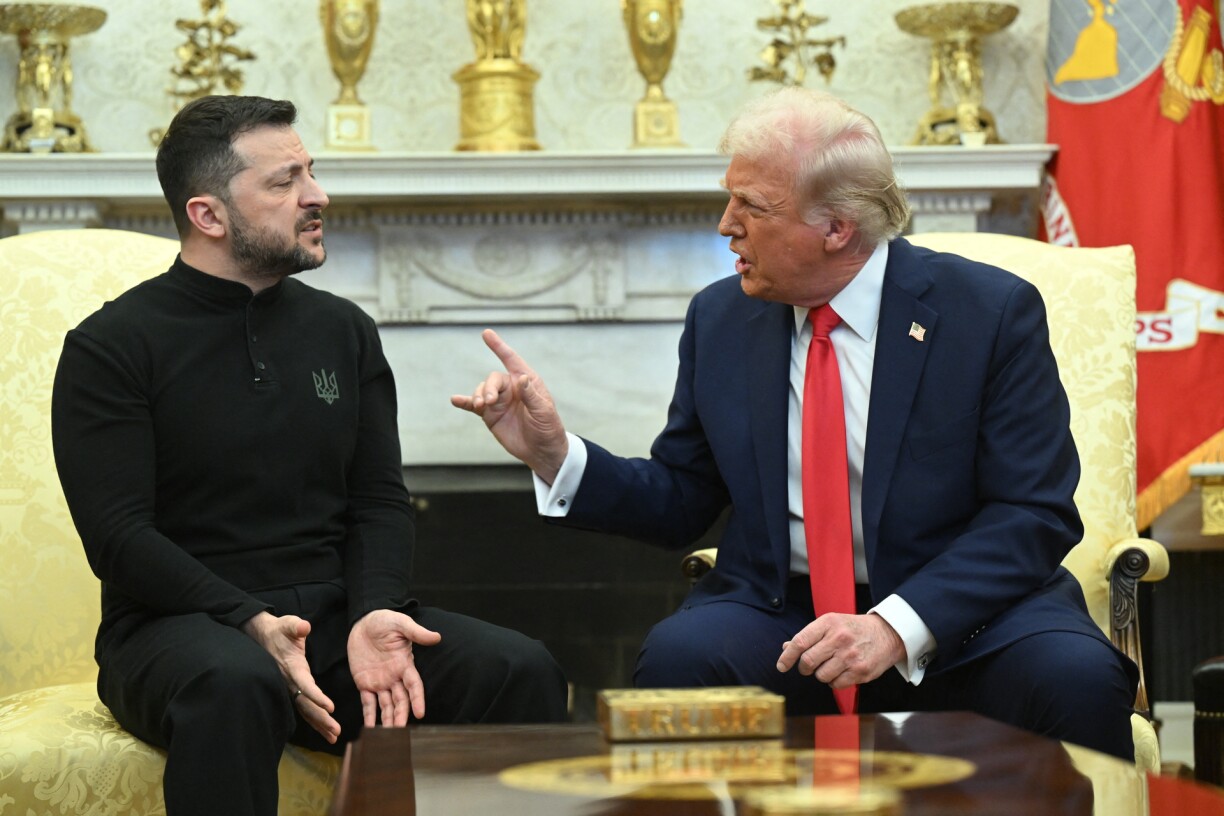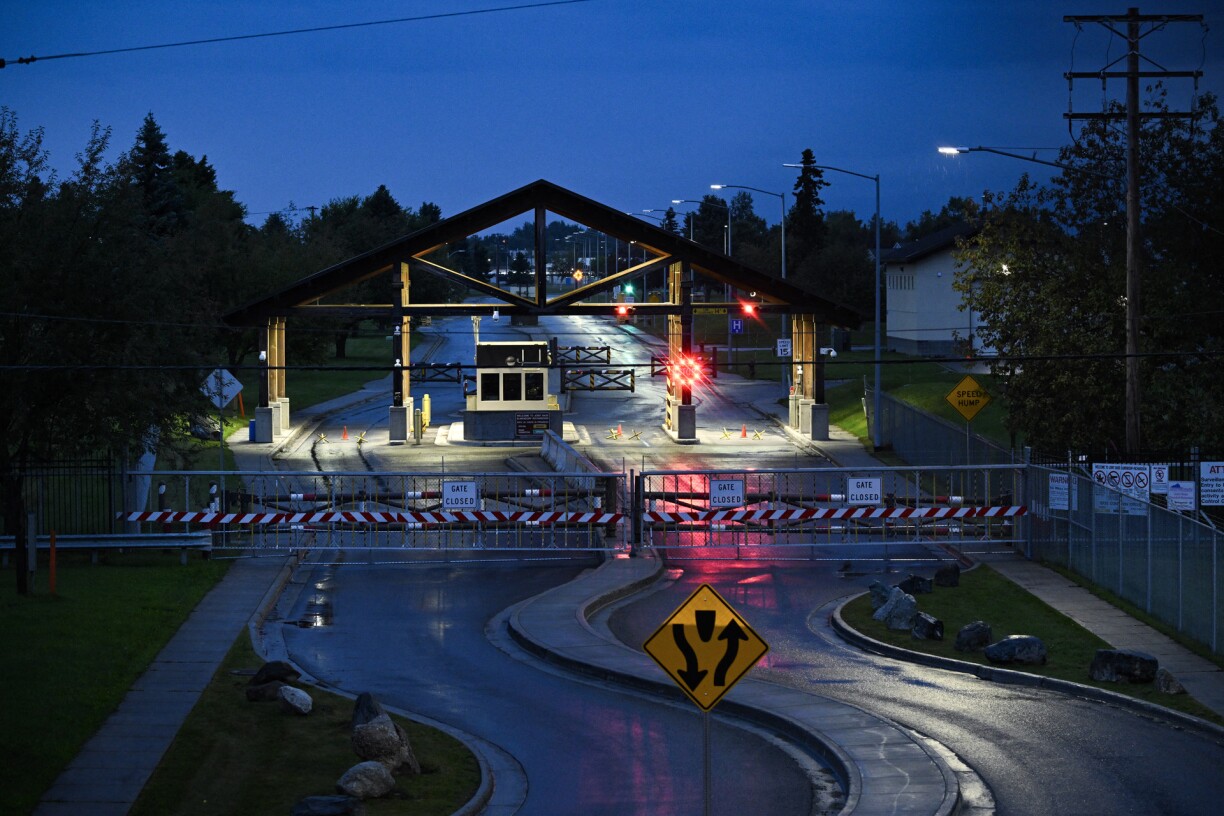
For the first time since the beginning of the Russo-Ukrainian war, the president of Russia will meet a US American president. Now, the whole world will be tensely watching their talk on Friday, taking place in Anchorage, Alaska.
The big question is: what can Trump even hope to achieve?
During the 2024 election campaign, Trump often emphasised that he would be able to stop the war in Ukraine within a day. He did not specify, however, how he would achieve that.
“If I told you, it would no longer work”, the 45th and 47th US president kept reiterating.
Without fail, he also blamed his predecessor, president Joe Biden, for the war. Trump stated in one interview after another that “had [he] been president, it would never have come [to war]”.
Fast forward nine months and Trump is in office again but nothing much has changed about the war in Ukraine. In true Trump-fashion, the republican regularly changes his position regarding Putin who, from one day to the next, is either reasonable while Ukrainian president Volodymyr Zelensky is in the wrong, or the other way around.
During a clash in the White House in February 2025, Trump and vice president JD Vance accused Zelensky of lacking gratitude and respect, among other things, because the Ukrainian president had decided not to wear a suit to the meeting.

Shortly after, however, Trump had adopted a more friendly position towards Zelensky again, and signed an accord stating that in return for financial and military support, the US should receive priority access to Ukraine’s rare minerals. Analysts deemed this accord a safety net guarantying the US’ continued support of Ukraine.
Since then, nothing much has changed: the US continues sending arms to Ukraine, while Russia continues to be on the offence.
During the last elections, Trump managed to amass an immensely diverse voter base; especially undecided, i.e., non–affiliated, voters were persuaded even before Trump’s promise of becoming an anti-war president.
One such new follower is, for example, former democrat and prominent opponent of the Ukraine war Tulsi Gabbard. In return for her support, the former representative of Hawaii was appointed as director of national intelligence (DNI).
Support from his supporters hoping for the war to come to an end is starting to wane, however, in light of Trump’s continued failure to stop both the war in Ukraine and Palestine since his ascension to presidency. Within this faction, questions are starting to arise whether Trump, who is known as the “Deal Maker”, is either not able to or simply doesn’t want to bring the wars to an end.
As a result, war hawks among the US voters are more than satisfied with Trump’s performance: not only does he keep the war-machine going, but, with his latest attack on Iran, Trump has also proven that he’s more than capable of starting conflicts of his own.
With a president as unpredictable as Trump, it is indeed difficult to anticipate what the outcome of the summit with Putin might be. Could it be a ceasefire, peace, or nothing at all?
One thing is clear: the planned location for the meeting suggests a more dominant hand for Putin. Indeed, the US is currently openly disregarding the International Criminal Court’s (ICC) mandate to arrest Putin, making it one of the only places worldwide open for Putin to visit.

This suggests Trump’s continued complicity in Putin’s agenda. What this support may look like remains uncertain for now, but it could all point towards the recognition of the fought-over territory.
Although Zelensky has, ever since the beginning of the war, made clear that this would not be an option, at the moment it doesn’t look like he will have much say in this decision. The president has indeed not even been invited to the summit.
The same goes for him as for Europe and the rest of the world: anxiously waiting for the first signs from Alaska.